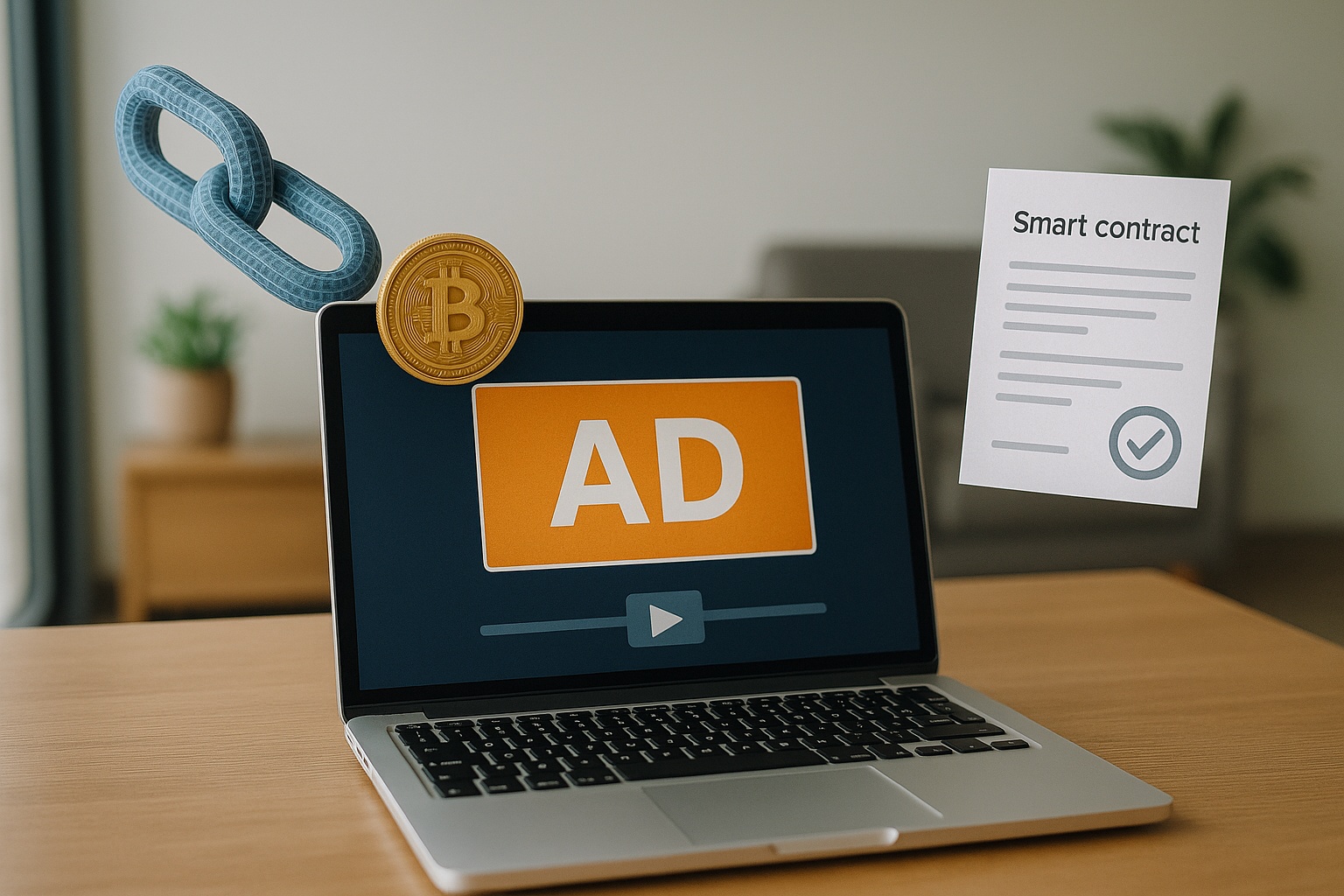Zero-knowledge proofs are becoming the best way to track campaigns without jeopardising user data as the digital marketing industry undergoes a dramatic change toward privacy-first strategies. Traditional monitoring techniques are becoming outdated as marketers struggle with stricter data privacy laws and rising consumer awareness of data security. This comprehensive tutorial explains how zero-knowledge proof technology can transform campaign monitoring, providing meaningful market insights and ensuring full GDPR compliance.
Table of Contents
A Deep Dive into Zero-Knowledge Proofs for Marketers
What Are Zero-Knowledge Proofs?
What are zero-knowledge proofs, therefore, and why are they important to marketers? Zero-knowledge proofs, or zero-knowledge proofs for short, are fundamentally a fascinating bit of cryptographic sorcery. They let someone demonstrate that they are aware of a fact, such as that a user clicked on an advertisement or made a transaction, without really disclosing any personal information about that user. It’s similar to having the ability to claim, “Believe me, I’ve seen the data,” without actually displaying the actual data. That may sound a bit abstract, but everyone involved in digital marketing may actually benefit from it. Conventional campaign monitoring techniques frequently utilise behavioural tracking, user IDs, and cookies to keep or reveal private data. Zero-knowledge proofs, on the other hand, allow you to verify certain interactions, such as clicks, conversions, or even the duration of an individual’s engagement with content, without ever having access to or keeping the user’s personal information. The mathematics behind zero-knowledge proofs is what really sets them apart. These are safe, mathematically supported techniques that guarantee data privacy from the ground up, not merely smart shortcuts. Zero-knowledge proofs promise a day when marketers won’t have to pick between integrity and insight as they attempt to strike a balance between GDPR compliance, efficient tracking, and growing consumer worries about data protection. It’s a fundamental reimagining of how we assess and respect user behaviour in a privacy-first environment, not merely a technological update.
The Three Pillars of Zero-Knowledge Proofs
Zero-knowledge proofs might sound complex, but at the heart of it, they’re built on three simple principles. Think of them as the ethical backbone that makes this privacy-first tracking model work in the real world, without sacrificing accuracy or compliance.
1. Completeness: Trust That What’s True Will Be Counted
If something actually happens, like a real user clicking your ad or signing up for your newsletter, the system will always recognise and validate it.
- This ensures no legitimate engagement slips through the cracks.
- In marketing terms, it means your campaign metrics are rooted in reality: real users, real actions, real insights.
- No more second-guessing whether that spike in conversions was just a tracking glitch or real growth.
2. Soundness: Fraud Doesn’t Stand a Chance
Here’s the deal: if someone tries to fake the data, say, bots simulating clicks or spoofing engagement, zero-knowledge proofs won’t fall for it.
- This principle acts like a built-in lie detector.
- It stops dishonest actors from manipulating results or inflating performance.
- So, your market analytics stay clean, credible, and manipulation-free—a dream come true for brands serious about transparency.
3. Zero-Knowledge: Privacy Without Compromise
This is the magic ingredient. The verifier (your system) learns only that a user action happened, not who did it or any other personal details.
- You can validate campaign interactions without storing or accessing private user data.
- It’s a perfect match for GDPR compliance and the growing demand for ethical data handling.
- Users stay anonymous, and you still get the proof you need to refine your strategy.
Together, these three pillars make zero-knowledge proofs a game-changer for anyone looking to do smarter, safer, and more responsible campaign tracking.
The Privacy Crisis in Modern Campaign Tracking
Current Tracking Limitations
Conventional campaign monitoring techniques mostly rely on gathering and keeping enormous volumes of personal data, which puts companies and customers at serious risk. These methods frequently include cross-device identification, cookies, and pixel tracking—all of which are in direct opposition to current data privacy laws and standards. Because of the fragmented ecosystem caused by the dependence on third-party cookies, user privacy is constantly jeopardised in the sake of marketing information. In addition to betraying consumer confidence, this strategy puts companies at serious risk financially and legally under different data protection laws.
GDPR Compliance Challenges
Operating in or targeting the European market? Then GDPR compliance isn’t optional; it’s mission-critical. But here’s where it gets tricky: most traditional tracking systems weren’t built with these regulations in mind.
1. Traditional Methods Struggle with Key GDPR Principles
- Data minimisation: Marketers often collect more data than necessary, just to “be safe,” which directly violates this core principle.
- Purpose limitation: Data must be used only for the reason it was collected, and many tracking systems blur these lines.
- Consent management: A checkbox buried in a cookie banner doesn’t cut it anymore. GDPR demands clear, informed, and opt-in consent.
2. Explicit Consent Isn’t Just a Formality—It’s a Legal Obligation
- Users must actively agree to be tracked, and you need proof of that consent.
- Every time a user revokes permission, you’re obligated to stop processing their data immediately and completely.
3. The “Right to Be Forgotten” Brings Major Operational Headaches
- When users request deletion of their data, businesses must ensure it’s removed from all systems, backups, and analytics tools.
- This is especially difficult with legacy systems that don’t easily support such granular data management.
4. Constant Uncertainty Is the New Normal
- Many organisations live in fear of audits and fines because they aren’t 100% sure their practices are compliant.
- Without airtight consent logs and transparent tracking processes, compliance becomes a guessing game, and that’s risky business.
Zero-knowledge proofs offer a compelling alternative to these challenges, flipping the script by enabling insight without exposure.
Consumer Trust and Data Security Concerns
When it comes to their personal information, customers nowadays are more knowledgeable than ever. They now know how brands monitor, characterise, and make money off of their digital footprints. The trust that formerly existed between companies and their viewers has been eroded by this increased awareness. Traditional tracking techniques, therefore, pose brand risks in addition to compliance problems. No matter how little, any data leak erodes public trust in digital marketing in general and feeds scepticism. Businesses cannot afford to be irresponsible in this atmosphere. It is not only a regulatory issue, but a brand also needs to have safe and private campaign tracking techniques. In order to gain and maintain trust, businesses must put data protection first while also figuring out how to gauge and enhance.
Transforming Campaign Tracking with Zero-Knowledge Proofs
Verification Without Disclosure
Zero-knowledge proofs are quietly rewriting the rules of campaign tracking for good reason. They give marketers something that’s felt almost impossible until now: the ability to confirm key performance metrics like clicks, conversions, or content engagement without ever peeking into someone’s personal data. No names, no email addresses, no device IDs, just the proof that an action took place. Behind the scenes, this is all made possible by sophisticated math that builds a kind of digital “receipt,” showing that something happened without revealing who did it. For marketers, this means you still receive the insights you need to refine campaigns and make informed decisions. For users, it means peace of mind knowing their privacy isn’t being quietly traded for metrics. It’s a rare win-win, proof that privacy and performance don’t have to be at odds.
Privacy-Preserving Attribution Models
Traditional attribution models often feel like digital surveillance, tracking users across every click, scroll, and swipe just to stitch together a full customer journey. It’s invasive by design, relying heavily on collecting and connecting personal data across devices and platforms. But zero-knowledge proofs flip that script. They allow marketers to understand which channels and touchpoints are driving results without turning users into data points. Instead of building detailed profiles, these privacy-first attribution models use clever cryptographic proofs to confirm that interactions happened and contributed to conversions, while keeping the who completely out of the picture. You still get clear, actionable insights into what’s working, but your users stay anonymous from start to finish. It’s smart analytics with a conscience.
Real-Time Campaign Optimisation
The ability of zero-knowledge proofs to enable real-time campaign optimisation without compromising user privacy is among their most intriguing features. In the past, making last-minute campaign adjustments typically required sifting through mountains of personal data to determine what was and wasn’t working. However, zero-knowledge proofs allow you to reliably and quickly check performance while ensuring that user identities are kept entirely hidden. Without ever violating anyone’s privacy, it’s similar to having a live performance dashboard that lets you know what’s converting and what’s failing. This implies no latency, no guessing, and no compromise on data integrity. This means that marketers may spend more wisely, make changes more quickly, and keep a closer eye on the outcomes, all while adhering to privacy and public trust laws.
GDPR Compliance and Legal Advantages
Built-in Data Minimisation
Zero-knowledge proofs naturally align with one of GDPR’s core principles, data minimisation, right out of the box. Unlike traditional methods that collect more data than needed “just in case,” zero-knowledge proofs are designed to prove something happened without ever revealing the actual data behind it. That means businesses don’t have to sift through personal details or store piles of sensitive information just to verify campaign results. It’s a privacy-by-design approach that stops excessive data collection before it even begins. For marketers and organisations trying to stay on the right side of GDPR, this is a huge win. By using zero-knowledge proofs for tracking, you’re not only protecting user privacy; you’re also demonstrating to regulators that your data practices are intentional, ethical, and built for compliance from the ground up.
Simplified Consent Management
One of the biggest headaches in marketing today is juggling privacy laws and consent pop-ups. Zero-knowledge proofs quietly change the game here. Instead of constantly asking users for permission to handle their data, zero-knowledge proofs let you prove what’s needed, like verifying a user action or conversion, without ever seeing or storing any personal information. Since no actual user data is touched, many of those rigid consent requirements simply don’t apply. That means fewer checkboxes, less legal friction, and a cleaner experience for everyone involved. Marketers still stay fully within GDPR boundaries, but without bogging users down with endless consent forms or privacy policies they’ll never read. It’s not just more efficient; it’s also more respectful to the user.
Enhanced User Rights Protection
Zero-knowledge proofs don’t just work around GDPR; they actually lean into it. Take the user’s right to be forgotten or to move their data elsewhere. With zero-knowledge proofs, no personal data is stored in the first place, so there is nothing to delete or transfer. That’s not a loophole; it’s a built-in advantage. It naturally fulfils some of the trickiest compliance demands without extra backend wrangling.
Additionally, zero-knowledge proofs align perfectly with the “privacy by design” principle. Instead of tacking on privacy measures as an afterthought, this tech bakes protection in from the start. It’s a forward-thinking approach that regulators love to see, because it means your system isn’t just compliant; it’s built to respect users from the ground up.
Implementation Strategies for Data Security
1. Rethinking Your Tech Setup from the Ground Up
Implementing zero-knowledge proofs isn’t just plug-and-play. The math behind zero-knowledge proofs’ heavy cryptographic computations needs some serious brainpower and computing muscle.
Specialised Know-How is a Must
These aren’t everyday algorithms. Your in-house team will either need to level up, or you’ll need to bring in external experts who eat cryptography for breakfast.
Budget vs. Brainpower
Building internal capabilities gives you control but comes at a cost (time and money). Partnering with a zero-knowledge proof tech provider might get you off the ground faster, especially if you’re tight on deadlines.
2. Getting Zero-Knowledge Proofs to Play Nice with Your Marketing Stack
Adding zero-knowledge proofs into your existing marketing workflow isn’t just an add-on; it’s more like fitting a square peg into a round hole, unless you plan for it.
Making Tools Talk
Whether it’s your CRM, analytics dashboards, or ad campaign software, you’ll need to ensure zero-knowledge proofs integrate cleanly with what’s already in place. That may mean rethinking some of your data flows.
Custom Bridges May Be Inevitable
Out-of-the-box solutions are rare. Expect some development work to connect the dots between your current setup and the new privacy-preserving architecture.
3. Performance: Don’t Let Privacy Kill Speed
One of the significant trade-offs of zero-knowledge proofs is their resource-intensive nature. If you’re not careful, all that math can slow your campaigns to a crawl.
Plan for the Traffic Spikes
Just because your campaign works in a test environment doesn’t mean it’ll survive a viral spike. Your backend needs to be ready for sudden bursts of activity without lagging.
Scale Without Sacrificing UX
Make sure your infrastructure can handle zero-knowledge proof computations at scale. A delay of even a second or two in loading or tracking can quietly kill conversions.
Each of these areas is tightly connected; your architecture decisions affect integration, which in turn impacts performance. Treat them as one ecosystem, not separate projects. If done right, zero-knowledge proofs won’t just tick the compliance box; they’ll future-proof your marketing stack for a privacy-first world.
Market Analytics Without Compromise
1. Aggregated Insights and Trends
Zero-knowledge proofs give you access to the goldmine of analytics, without ever looking at individual user data.
Insights, Not Identities
You can still track what matters, market shifts, behaviour trends, and seasonal spikes, but everything stays aggregated. You’re reading the room without spying on the people in it.
Better Strategy, Less Risk
These insights help marketers make smarter decisions without triggering legal alarms or breaching user trust.
2. Competitive Intelligence and Benchmarking
You don’t need to play dirty to get ahead. Zero-knowledge proofs allow brands to benchmark themselves and understand where they stand in the market ethically.
Know Where You Stand, Securely
Even in sensitive sectors like finance or healthcare, zero-knowledge proofs enable you to compare performance metrics and identify gaps without risking data leaks or policy violations.
Stay Sharp Without Getting Burned
In industries bound by strict privacy regulations, this method gives you the competitive edge without crossing any compliance lines.
3. Predictive Analytics and Forecasting
Thanks to zero-knowledge proofs, predictive analytics and forecasting don’t require a peek into private user profiles.
Anonymised Data, Real Impact
By studying patterns in anonymised, aggregated data, marketers can forecast trends, allocate budgets smartly, and time campaigns to perfection.
Privacy-First Models That Still Perform
You don’t have to choose between ethical data practices and powerful predictions. With zero-knowledge proofs, you get both solid models and rock-solid privacy.
In a nutshell, zero-knowledge proofs don’t limit your analytics—they actually open new, privacy-safe ways to gather intelligence, forecast demand, and outperform the competition. You can finally have data-driven strategies without sacrificing the very trust your brand relies on.
Real-World Applications and Success Stories
Zero-knowledge proofs aren’t just tech jargon; they’re already making a real difference in industries where privacy matters most.
1. E-commerce Campaign Tracking
For e-commerce brands, campaign tracking usually walks a fine line between performance and privacy, but zero-knowledge proofs are helping them ditch that balancing act altogether.
No need to stalk shoppers
These businesses can now measure if a customer made a purchase or came from a referral without digging into their browsing history or storing their personal information.
Better trust, better results
When customers aren’t constantly being followed online, they’re more likely to return. One online fashion brand even saw its repeat visits go up just by switching to privacy-first tracking.
ROI meets respect
They’re not just protecting privacy; they’re actually improving campaign performance while doing it.
2. Healthcare Marketing
If there’s any industry where data privacy can’t be taken lightly, it’s healthcare. And for years, marketing teams here felt stuck—either run no campaigns or risk stepping into compliance grey zones.
Finally, a workaround that works
With zero-knowledge proofs, health organisations can confirm campaign impact (like appointment bookings or website visits) without ever storing patient information.
HIPAA-safe and stress-free
Whether it’s a health app or a hospital system, teams can now track what’s working and stay fully HIPAA-compliant.
Marketing that respects lives, not just clicks
It’s a much-needed win for a space where trust is everything.
3. Financial Services Applications
Banks, fintech apps, and insurance companies aren’t exactly known for experimenting with data. And with tight regulations, that’s probably a good thing. But that doesn’t mean they have to fly blind on campaign effectiveness.
Yes to insights, no to data exposure
With zero-knowledge proofs, these brands can track sign-ups, conversions, or app installs without touching account numbers or financial details.
Security and compliance are baked in
It’s not just safer; it’s cleaner, simpler, and audit-ready by design.
Doing data the right way
One large financial platform used zero-knowledge proofs to understand which digital ads were bringing in real users, without ever collecting personal data. That’s not just smart; it’s responsible.
These aren’t experiments; they’re proof that you can run effective, data-driven campaigns without creeping out your audience or breaking privacy laws. Zero-knowledge proofs are already powering a better kind of marketing: one built on trust, not tradeoffs.
Challenges and Limitations
Let’s face it, zero-knowledge proofs have their share of problems despite their amazing promise.
1. Technical Complexity & Skill Gaps
Zero-knowledge proofs aren’t plug-and-play, at least not yet. And for most marketing teams, the learning curve can feel steep.
It’s not just another dashboard
This tech is built on advanced cryptography, and that’s not something most in-house teams are ready to handle right out of the gate.
The talent gap is real
You’ll likely need to train your devs or bring in external experts, and neither option is cheap or quick.
Small teams may struggle more
For startups or lean teams, the cost of entry (both time and money) can feel like a dealbreaker.
2. Performance and Cost Trade-Offs
Protecting privacy is powerful, but it doesn’t always come cheap or fast.
More brainpower = more computing power
Zero-knowledge proof computations are resource-heavy. Compared to traditional tracking pixels, it’s like upgrading from a scooter to a spaceship; you’ll go further, but it’s going to cost you.
Cloud bills can spike
If you’re not careful with how these systems are scaled, the infrastructure costs can climb quickly.
Lag is a real risk
If things aren’t properly optimised, users might notice slower performance, especially during traffic spikes or real-time interactions.
3. Integration and Compatibility Hurdles
Marketing tech stacks weren’t exactly built with cryptography in mind, and that creates headaches.
Your tools won’t speak zero-knowledge proof out of the box
CRMs, analytics platforms, and ad managers; most aren’t ready for this tech. That means custom builds, workarounds, and more dev time.
No one-size-fits-all solution
Because zero-knowledge proof technology is still evolving, there is no universal standard. So, every integration can feel like reinventing the wheel.
Expect extra friction
Teams used to plug-and-play tools will need to adjust their expectations—this takes more planning, testing, and tweaking.
Although zero-knowledge proofs are effective, implementing them is a process that takes time and effort. The benefits are substantial if your business has the time and resources to execute them successfully. But you’ll need to adjust your expectations if you’re hoping for quick plug-in magic.
The Future of Privacy-First Marketing
Let’s face it, privacy has become the new standard rather than only a fad. Businesses that continue to use antiquated monitoring techniques are finding themselves on more precarious ground as laws and regulations throughout the world become more stringent. The good news? In addition to being a compliance tool, technologies such as zero-knowledge proofs are emerging as a more intelligent approach. Privacy-preserving techniques will become essential as more nations improve their data protection regulations. In addition to avoiding legal issues, progressive businesses that act quickly on this will gain the audience’s confidence and maintain an advantage over rivals. Even better, the tech is catching up. What once felt like the domain of cryptography PhDs is becoming more approachable by the day. With cleaner developer tools, smarter algorithms, and growing libraries of ready-to-use components, zero-knowledge proofs are no longer out of reach for small and mid-sized teams. And with ongoing efforts across industries to create shared standards and best practices, the pieces are falling into place for smoother, faster, and more cost-effective adoption. We’re heading toward a future where respecting privacy isn’t a compromise; it’s just good marketing.
Measuring Success and ROI
If you’re going to invest time, money, and technical brainpower into rolling out zero-knowledge proof technology, you need to know it’s actually paying off. But measuring success here isn’t just about how many clicks or conversions you’re getting; it’s also about proving that you can do smart marketing without putting user privacy on the chopping block. That means your KPIs need to evolve. Sure, you’ll still track the usual suspects, like engagement rates and campaign lift, but now you also need to keep an eye on things like compliance, peace of mind, fewer privacy complaints, and even subtle but important signals, such as a bump in user trust or a drop in opt-out rates. And when it comes to weighing the costs against the benefits, don’t just look at your short-term spending. A proper cost-benefit analysis has to zoom out and capture the full picture; yes, the upfront infrastructure and setup costs, but also the hidden wins: lower risk of fines, less time spent wrestling with consent management, and the long-term brand equity that comes from respecting people’s data. In the end, this isn’t just about tracking smarter. It’s about building marketing systems that work better because they respect boundaries, not despite them.
Embracing the Privacy-First Future
We’ve discussed in this guide how zero-knowledge proofs provide a concrete, innovative answer to some of the most pressing issues facing marketing today, such as regaining consumer trust in a digital world that is becoming more and more sceptical, enhancing data protection procedures, and navigating the complexities of GDPR. The long-term benefits are indisputable, even though execution may require some careful preparation and technical dedication. Companies that make this investment today will create more than just campaigns; they will create user trust, loyalty, and peace of mind.






